The Fragrant Smoke of Life
This spring, I went to Buzău to witness with my own eyes a cemetery transformed into a place of celebration — long, generous tables, and grills releasing the warm, fragrant smoke of life.
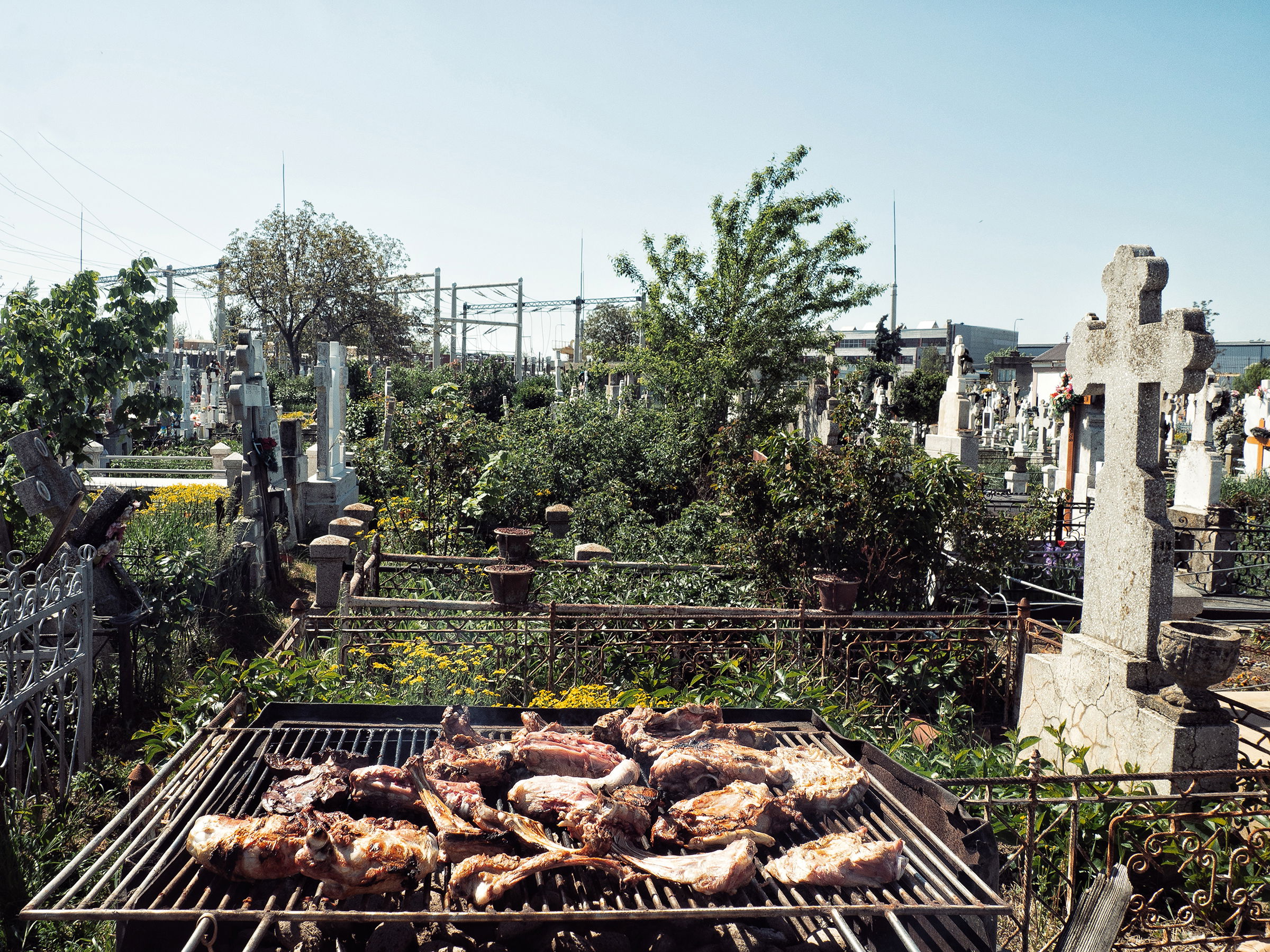
It happens at Sfântu Gheorghe Cemetery, where every year, on the first Monday after the Sunday of Thomas, local Roma families gather to honor their dead with abundant food and joy.
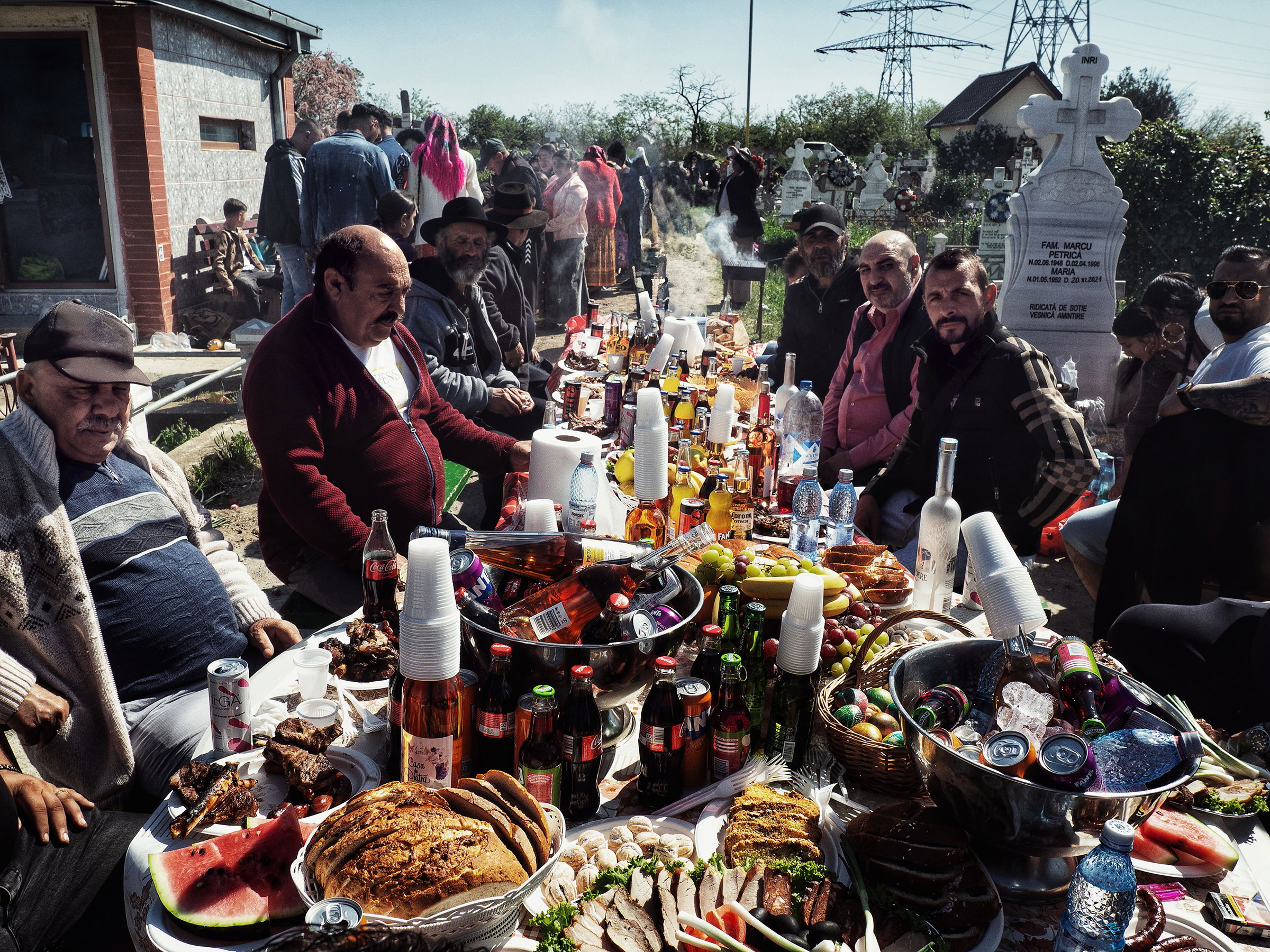
In the Orthodox Church, Easter of the Gentle Ones is a day of remembrance for the dead, rooted in pre-Christian popular mythology. The Gentle Ones are small, kind, anthropomorphic beings who pray for human souls and dwell in the Other Realm, surrounded by the mythical Waters of Saturday. Since they have no calendar, people announce the date of the feast by throwing dyed egg shells into flowing water.
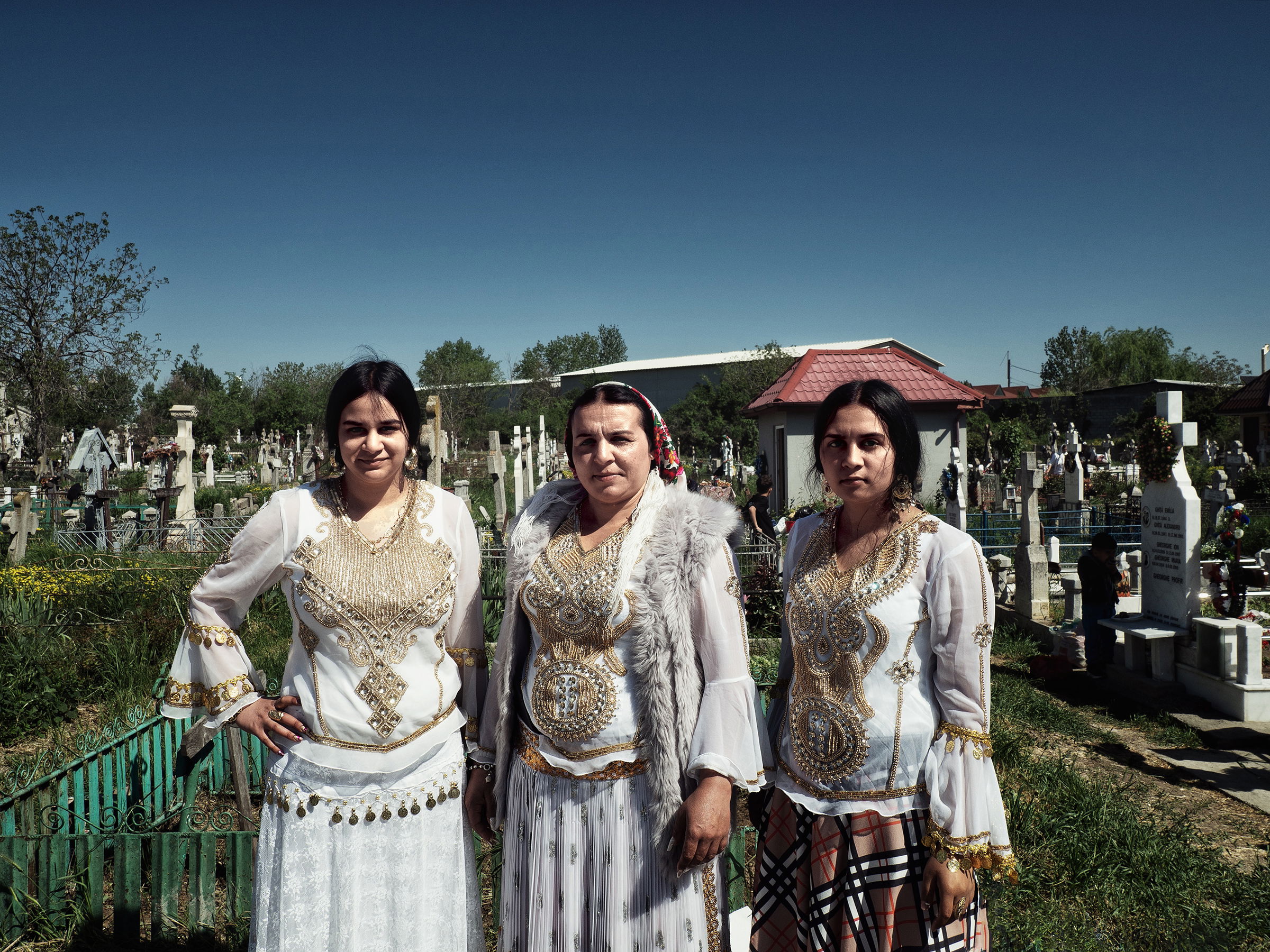
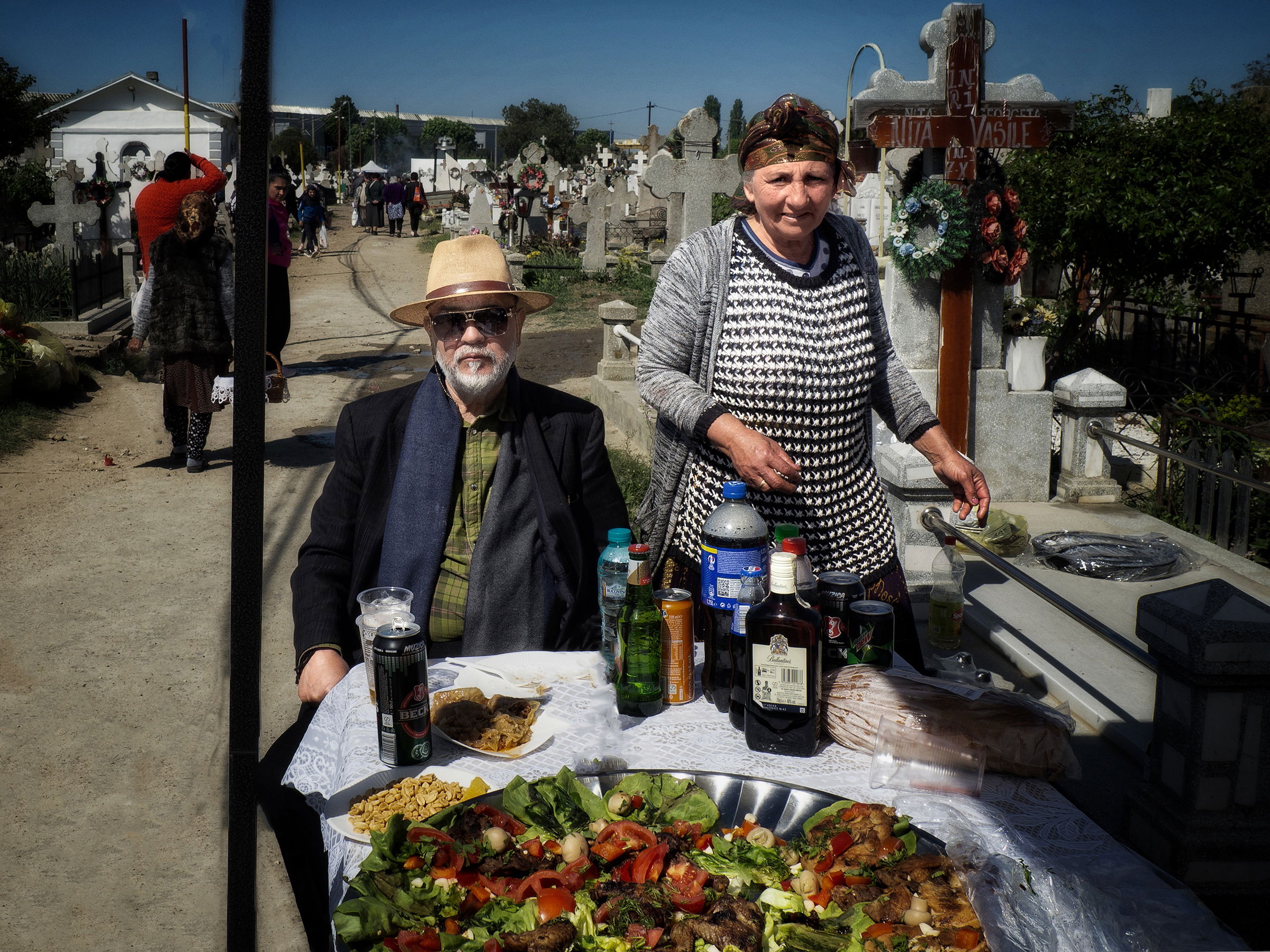
Beyond the myth, beyond the exotic spectacle unfolding above the earth packed with bones, this Roma tradition holds deep meaning for their identity. It reaches back to nearly five centuries of slavery, when Roma people were not allowed to join Christian celebrations alongside the rest of the community. Thus, Easter of the Gentle Ones became their Easter — a moment of belonging, and of collective, free-spirited joy.
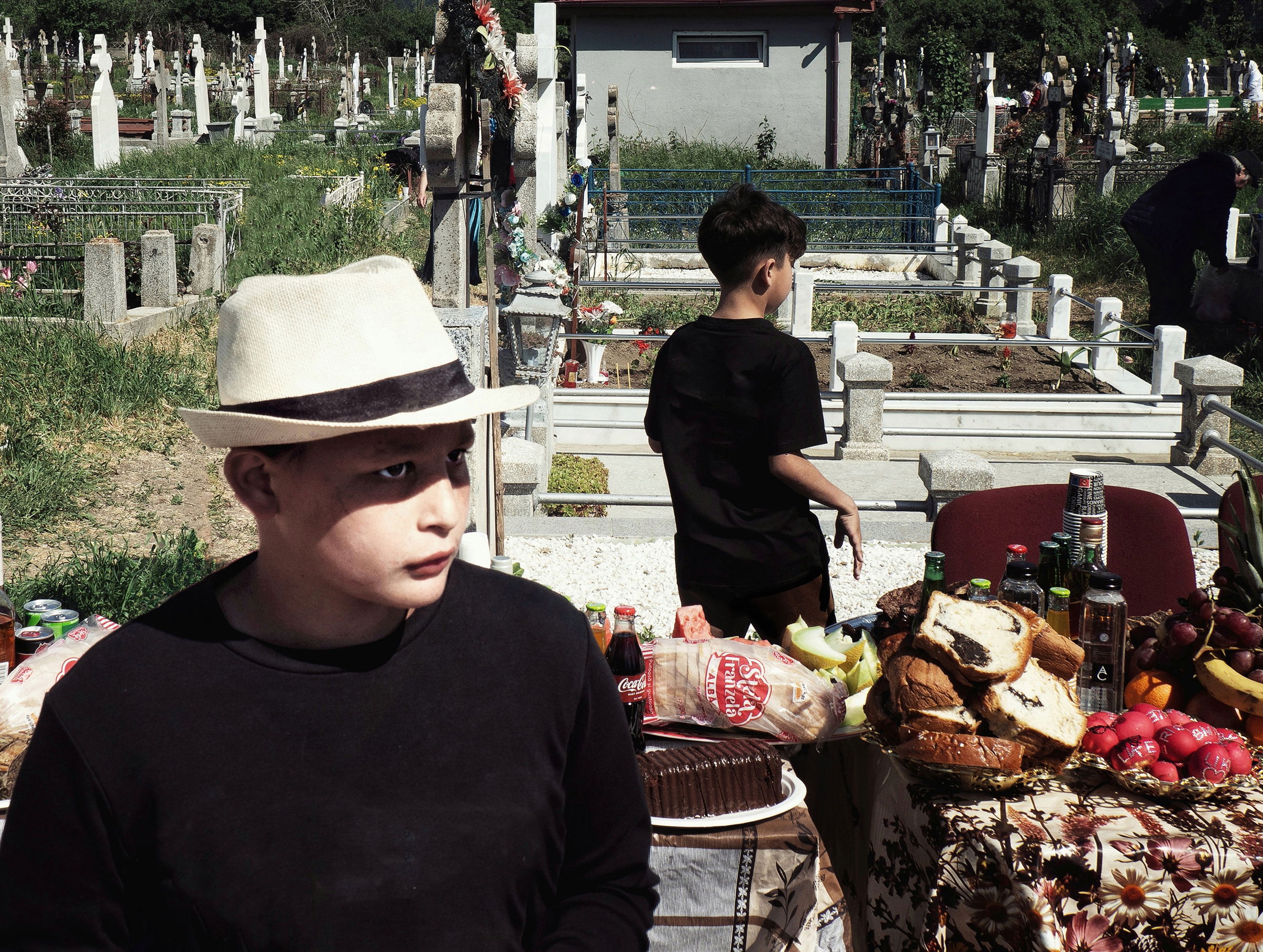
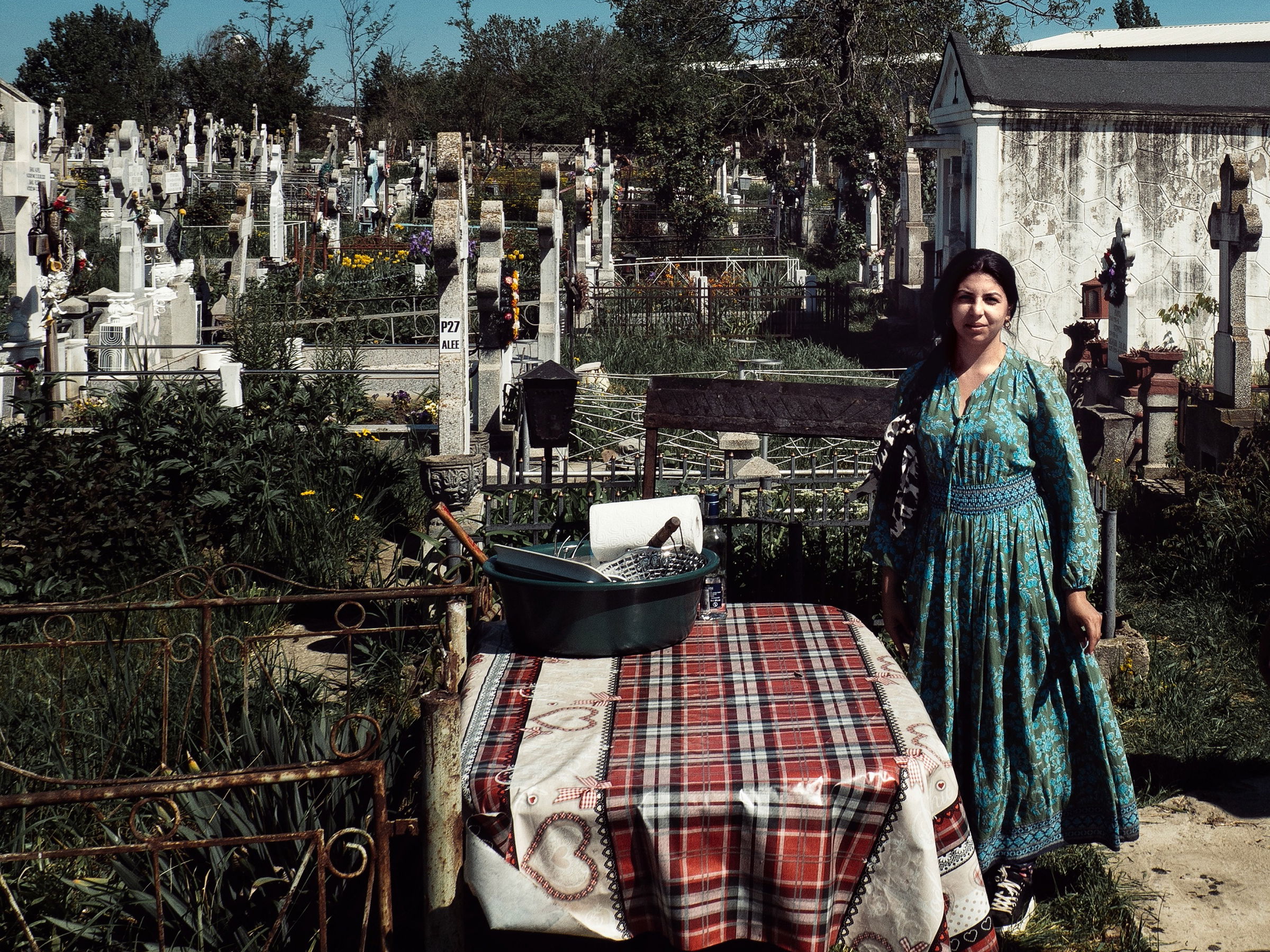
The vivid presence of life among the graves — so full of color and laughter, with platters of fruits and cakes, the smell of roasted meat, women calling out to one another, and children playing — is overwhelming for someone like me, who visits loved ones' graves rarely and in silence.
Here, death no longer felt sharp, heavy, or unnatural. Here, it truly became part of life.
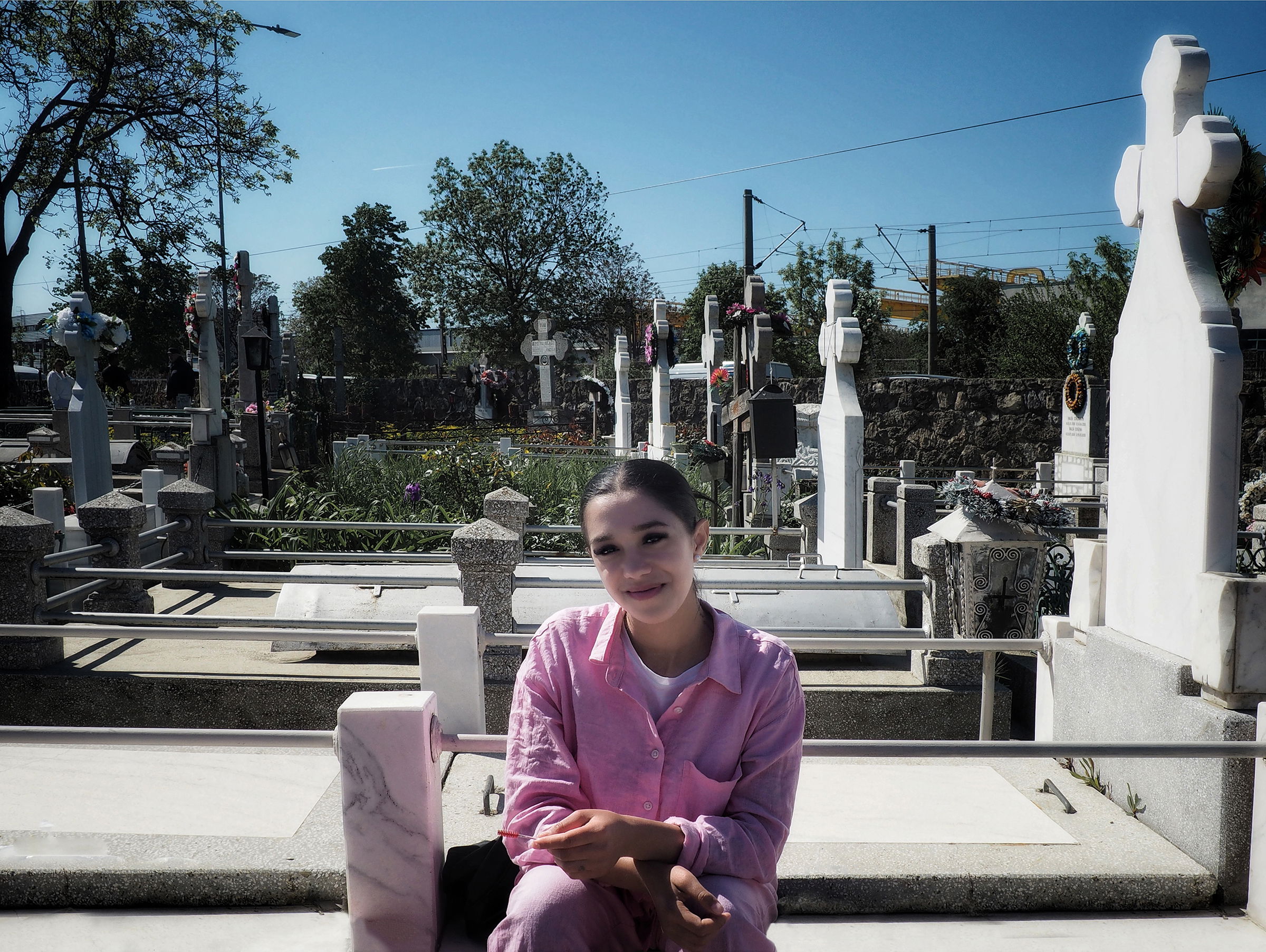
Photos & text: Ana Francesca Alexandrescu